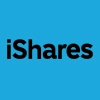Profile
| Metric | Value |
|---|---|
| Name | iShares Interest Rate Hedged High Yield Bond ETF |
| Assets Under Management | $446M |
| Expense Ratio | 1.12% |
| Asset Class | Fixed Income |
| Domicile | US |
| Inception Date | |
| Net Asset Value | 87K USD |
| Website | ishares.com |
| Last Ex-Dividend Date | |
| Next Ex-Dividend Date | N/A |
Top 30 Holdings
| Name | Ticker | Weight |
|---|---|---|
| 92.72% | ||
| 3.04% | ||
| 1.55% | ||
| 0.78% | ||
| 0.30% | ||
| 0.13% | ||
| 0.10% | ||
| 0.08% | ||
| 0.08% | ||
| 0.08% | ||
| 0.07% | ||
| 0.06% | ||
| 0.06% | ||
| 0.04% | ||
| 0.04% | ||
| 0.04% | ||
| 0.03% | ||
| 0.03% | ||
| 0.03% | ||
| 0.03% | ||
| 0.03% | ||
| 0.03% | ||
| 0.02% | ||
| 0.02% | ||
| 0.02% | ||
| 0.02% | ||
| 0.01% | ||
| 0.01% | ||
| 0.01% | ||
| 0.01% |
Chart
Technical Indicators
| Metric | Date | Value |
|---|---|---|
| $86.40 | ||
| $86.08 | ||
| SMA 200 vs Price | -0.37% | |
| $86.43 | ||
| SMA 50 vs Price | +0.03% | |
| 0.28 | ||
| $0.30 | ||
| 43.82 | ||
| 4.22% | ||
| 7.24% |
Dividends
| Metric | Date | Value |
|---|---|---|
| $0.43 | ||
| N/A | N/A | |
| 6.75% | ||
| $5.83 |
Country Weights
| Country | Weight |
|---|---|
| United States | 95.87% |
FAQ
Does HYGH pay dividends?
Yes, the iShares Interest Rate Hedged High Yield Bond ETF does pays dividends, with the most recent payment being $0.43 per share. The last ex-dividend date was on February 3, 2026, and the next ex-dividend date has not been announced yet
What stocks are in HYGH?
As of today, iShares Interest Rate Hedged High Yield Bond ETF includes 181 holdings with the most weighted are ISHARES IBOXX $ HIGH YIELD CORPORA (92.72%), BLK CSH FND TREASURY SL AGENCY (3.04%) and CASH COLLATERAL USD XJPM 12/31/2049 (1.55%)
What is the current assets under management for HYGH?
Assets under management of iShares Interest Rate Hedged High Yield Bond ETF is $446M
What is HYGH average volume?
Average volume of iShares Interest Rate Hedged High Yield Bond ETF is $90K
What is HYGH expense ratio?
Expense ratio of iShares Interest Rate Hedged High Yield Bond ETF is 1.12%
What is HYGH inception date?
Inception date of iShares Interest Rate Hedged High Yield Bond ETF is May 27, 2014
Data Sources & References
- HYGH Official Website www.ishares.com/us/products/264544/ishares-interest-rate-hedged-high-yield-bond-etf
- HYGH Profile on Yahoo Finance finance.yahoo.com/quote/HYGH
